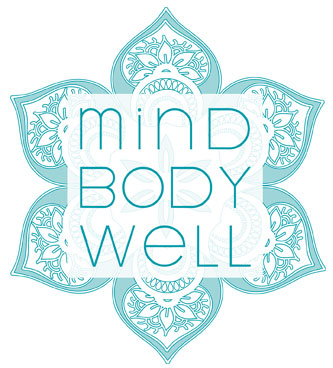Until recently meditation was considered a practice exclusive to gurus in caves and swamis on mountain tops. Now more mainstream than alternative, you’ll see meditation mentioned in even the most conservative of medical and psychological journals. Academics and researchers are increasingly interested in how meditation effects our thoughts, our behaviours, and even the very structure and function of our brains.
Train Your Brain: Positive Neuroplasticity
Have you noticed the natural tendency most of us have to exaggerate one negative experience amongst a whole bunch of positives? How we minimise a range of pleasant experiences at the expense of a more unpleasant one which occupies our full attention?
It turns out this tendency is actually hard wired into our brain as a legacy of our evolutionary development. Our brain is trained to look out for potential dangers or threats, with what Neuroscientists call the ‘Negativity Bias’.
How's Your Self-Compassion?
I was shopping at my local Farmers Market last week when I saw a woman near me juggling her bags of shopping. Given she only had two hands and a lot of bags this was quite a task! She picked up the eggs she’d just bought, fumbled and then dropped the carton onto the ground, spilling eggs over the grass and cracking a few. I went to help her and what do you think was the first thing she said?
“Oh, I’m such an idiot!”
I helped her clean up the eggs and said something about how I often think I can carry more than I can.
Self-Care is not Selfish!
I’ve been having a lot of conversations with people lately about self care.
As we approach the pointy end of the year it seems many people are holding their breath waiting for the big exhale on Boxing Day, hoping to spend time engaging in self care activities when the festive season has passed.
It’s surprising though that so many people talk about self care as if it’s something that’s a bit selfish, naughty, decadent, and belongs down the bottom of the ‘things to do’ list.
Mindfulness is the New Black
Is it just me noticing this, or is everyone actually talking about Mindfulness?
I bought a new car recently, and the sales person informed me “you need to be mindful of fuel economy when you drive long distances”. I heard Jamie Oliver on TV last night recommending we “be mindful not to add too much salt”. And my nail technician a couple of weeks ago when I was getting a manicure (yes, I know, groan), asked me to be mindful not to hit my wet nails against the inside of the nail dryer.
The Problem with Body Image
The language of ‘body image’ is common in our culture of attention to appearance, and lately, conversation about body image seems to everywhere. Body image is a factor commonly related to mental health for young people, and is similarly a concern for many people as they age and come to terms with their changing bodies.
When you think about it, it’s pretty strange that we give so much attention to the image of our bodies.
Love Your Body
I used to cringe at the phrase ‘Love Your Body’.
Every anti-narcissism bone in my body reacted to this as a statement I thought of as ego-based and overly focused on appearance.
But I’ve been thinking about what it might mean to really love your body and I’ve changed my mind. Love after all, is about care. It’s about kindness, respect, and a deep affection and appreciation.
The Art of Moderation
We live in a world which is full of extremes… extremes particularly in an all-or-nothing sense.
Extremes like working excessive hours to then take long holidays to ‘get away from it all’. Or spending months overdoing it with alcohol to then revert to puritanical detox regimes. And there are those who burn the candle six nights a week to then attempt to make up for it with one long day of rest on the seventh. And people with the attitude that unless you adore someone with a ferocity close to obsession then you mustn’t love them at all.
Understanding Emotion
Ok… lets be clear about something in our psychological world that seems to cause an awful lot of misunderstanding – there’s no such thing as a ‘negative’ emotion.
The language of ‘positive’ and ‘negative’ emotion seems to be commonplace in our popular language about mental health. This positive/negative assessment of our emotions is one which is primarily based on perceived desirability. Happiness is highly desirable, therefore we refer to it as ‘positive’. Other emotions though such as fear or sadness are not quite as desirable, and as a result are often labelled as ‘negative’.
Change is Always Possible
When we can look at our life objectively one thing we may notice is that change is happening, all the time. Think about it. People you used to love are no longer in your life and you now have new relationships. The way you spend your time may have changed. Maybe experiences that used to hold importance and value for you have been replaced by new experiences. And sure as we can be, our minds, bodies and the world around us are changing in each and every moment.
Striving for Perfection
When I’m asked what I see as the most common issue related to emotional distress in the clients I see for counselling I can answer overwhelmingly… it’s striving for perfection. And the most common response from clients when I suggest this may be an issue for them?
“No, I’m not a perfectionist, I just never get anything right”.












